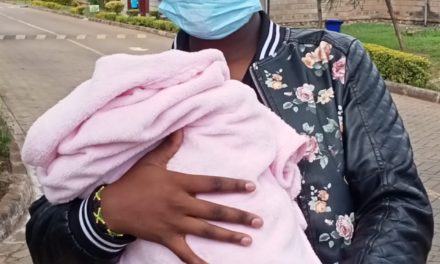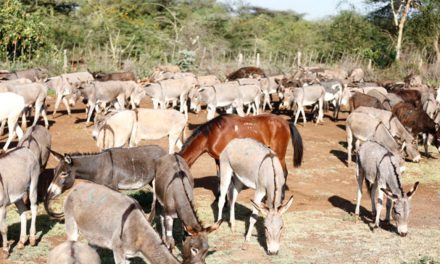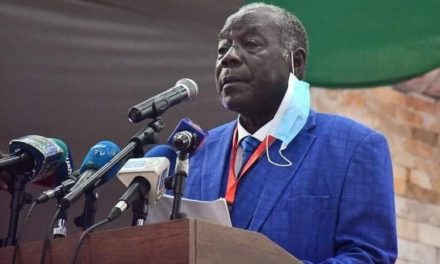
Women emerge as casualties of South Sudan’s Floods

“Then everything was taken by water. When I lost land then I lost money.”
Floods triggered by torrential rains have left a trail of destruction, creating a huge impact on livelihoods in South Sudan.
Women are unquestionably facing a disproportionate share of the harmful consequences of the floods.
In Fangak, a remote town in South Sudan’s Jonglei state, women have lost farm lands, livestock, homes and live in constant fear of recurring floods.
Severe floods are impacting many women in South Sudan’s regional states.
Floods have damaged farmlands, homes, wrecked crops, caused significant erosion, killed cattle, and washed out roads and bridges across much of Jonglei state.
Nyatidet Nyatute , 40, a mother of four has elevated lofts and relocated her few belongings to higher ground to keep her children safe when the waters rise.
But access to food remains a major challenge.
“We had enough food by then, but today we don’t have enough food. The only meals we are having are water lilies, which we get from the river.”
“Sometimes we do fishing, but when you lose a fishing net, that means you will have no fish. We come and dry up the water lilies and then we start grinding it. So, that’s the source of food.” Nyatidet said.
Ngate Yawa, 24 and a mother of four, lost an entire acre of cropland to the floods, stripping her of both a livelihood and hope.
“My plants I had already planted them and they started to grow, it was the time that we started to harvest them, that was August and then the floods came. Instead of harvesting my crops, I just started taking my children out of the area to where it was safe. Then everything was taken by water.”
“When I lost land, I lost money.” Ngate added warily.
It’s not just the loss of land that has affected women like Ngate and Nyatidet. Roads leading to major health clinics and schools have been cut off making it difficult to seek health care, while hundreds of children are out of school.
“When someone falls sick, we use canoes then we take the child to the hospital. When they get medication, then we come back, this is the means of transportation that we are using.” Ngate said.
Nyatidet and Ngate, like many other women in Jonglei, believe that flooding is unavoidable. They understand that the weather is no longer predictable, and that flooding can occur at any time.
Biel Boutros, Fangak county commissioner says climate change is changing people’s lives for the worse. He says hygiene and sanitation has been compromised, and fears are rife that more people could face the worst starvation.
“When we are talking about food insecurity, it’s really on the ground. People may be reading stories, watching it on TVs or in the movies, but this is the reality that people are dealing with.” Boutros said.
“People are suffering; they’re surviving on water lilies. The biggest issue is food, medicines and shelter.” The commissioner added.
In South Sudan, UNHCR estimates close to 800,000 people have been affected to date by rising waters across the country since May.
In particular, Jonglei, Unity, and Upper Nile states, are the worst affected states.
IOM chief of mission in South Sudan, Peter Van Der Auwersert, says a long term solution to the flooding problem in the country requires urgent action.
“What we are seeing today clearly is, if I can call it that, climate change in action. The answer there is not humanitarian assistance, the answer is water management, how can we in the future as a country and a region manage the water of the Nile better so that we don’t have this further flooding?” Van Der Auwersert queried.
World leaders gathered in Scotland at the 26th United Nations Climate Change Conference, hope to achieve a major breakthrough on climate change, potentially saving women like Nyatidet and Ngate from the severe effects of climate change.
Cover photo:Nyatidet Nyatute is a mother of four who relocated her few belongings to higher ground to keep her children safe in Fangak (Photo: Shiella Ponnie)























Recent Comments